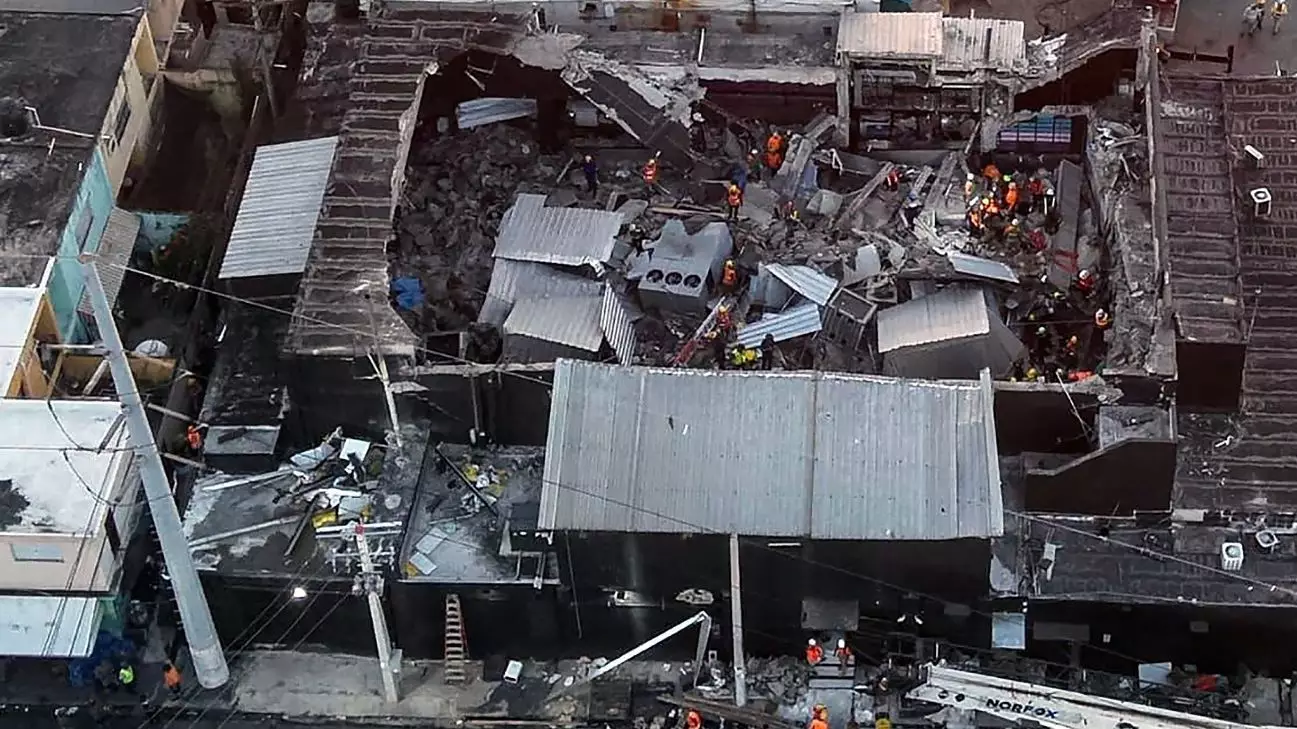The catastrophe that occurred early Tuesday morning at the Jet Set nightclub in Santo Domingo is a grim reminder of how quickly joy can turn to despair. A vibrant night of music, seemingly filled with the laughter and excitement of its attendees, transformed into a horrifying scene when the roof collapsed, claiming the lives of over 70 individuals, including beloved former Major League Baseball players Octavio Dotel and Tony Blanco. The weight of this tragedy cannot be overstated; it reverberates not only through the Dominican Republic but also across the global baseball community, which shares a special bond with its players and fans.
A cherished location known for hosting countless events and a gathering point for athletes, politicians, and locals, Jet Set became a site of mourning rather than celebration. The loss includes not just sports icons but also key figures like Nelsy Cruz, sister of MLB All-Star Nelson Cruz, who had recently called for help just moments before the disaster unfolded. It begs the question, how can a place known for joy morph into a ground zero of grief?
The Aftermath: Mixed Emotions and Urgent Questions
As reports of the incident continue to emerge, reflections on the event have flooded social media channels. Major League Baseball Commissioner Rob Manfred expressed his sorrow, underscoring the profound connections that intertwine baseball and the Dominican culture. This kind of heartfelt acknowledgment is essential, but it also raises the issue: why was safety not prioritized over profit or attraction? Even in moments of grief, the underlying flaws in our infrastructure and event management practices become glaringly evident.
The statement from MLB Players Association executive director Tony Clark reiterated the solidarity of the community, but the haunting reality remains. How many tragedies will it take for changes to be made? With injury reports reaching upwards of 160—each injury accompanied by a story of hope or loss—one must wonder if governmental oversight and accountability are sufficient in preventing such catastrophic failures in the future.
Authorities scrambled to analyze the cause of the collapse, but answers remained elusive. Delays in emergency services, or a generalized neglect for safety in crowded venues, should not be tolerated in a nation that prides itself on its cultural events and international tourism. Rescue efforts to recover survivors continued long into the day, with images of weary firefighters working through debris—indicative of both the human spirit and systemic limitations—resonating in our collective conscience.
A Community Grieves: The Pain of Personal Loss
In the wake of such sorrow, the Dominican baseball community stands heartbroken. Octavio Dotel, only 51 years old, had a career that spanned multiple teams and eras, leaving an indelible mark on the game. His untimely passing not only robs the sport of a historical figure but also leaves behind grieving family and friends who will never again hear his laughter or experience his passion. Similarly, Tony Blanco’s journey through baseball and beyond reflects the tenacity of Dominican athletes, yet in the wake of this tragedy, we must all confront the fragility of life.
The emotional blow felt by Nelson Cruz, mourning the loss of his sister, represents the human aspect of this tragedy—one intertwined with professional accolades yet rife with personal pain. The spotlight of public life often shines brightly, but when it dims through tragedy, it reveals the vulnerability lurking beneath the surface. Recognition must be given not just to the victims but to families grappling with a profound sense of loss.
Reflecting on Safety: The Call for Action
As we process this heartbreaking event, a renewed call for accountability emerges. How could a venue laced with cultural significance become a site of devastation? The local government, as well as venue operators, must take a hard look at safety protocols and emergency preparedness measures. A moment of silence is not enough; it must accompany real action that addresses infrastructure safety.
This tragedy serves as a wake-up call, compelling us to consider how we value the lives in our communities, especially those who gather to support one another in celebration. The tragic collapse not only attests to systemic failures but elevates the need for stringent regulations that safeguard lives. A nation with a rich baseball heritage must ensure that venues not only host joyful moments but also uphold the highest standards of safety.
The wave of sadness sweeping across the baseball community highlights the profound connections formed through sports but also urges us to reconcile these connections with the realities of our shared humanity. Recognizing the pain, encouraging dialogue, and demanding change—this should be our collective response as we mourn the lost and work toward preventing future tragedies.


Leave a Reply